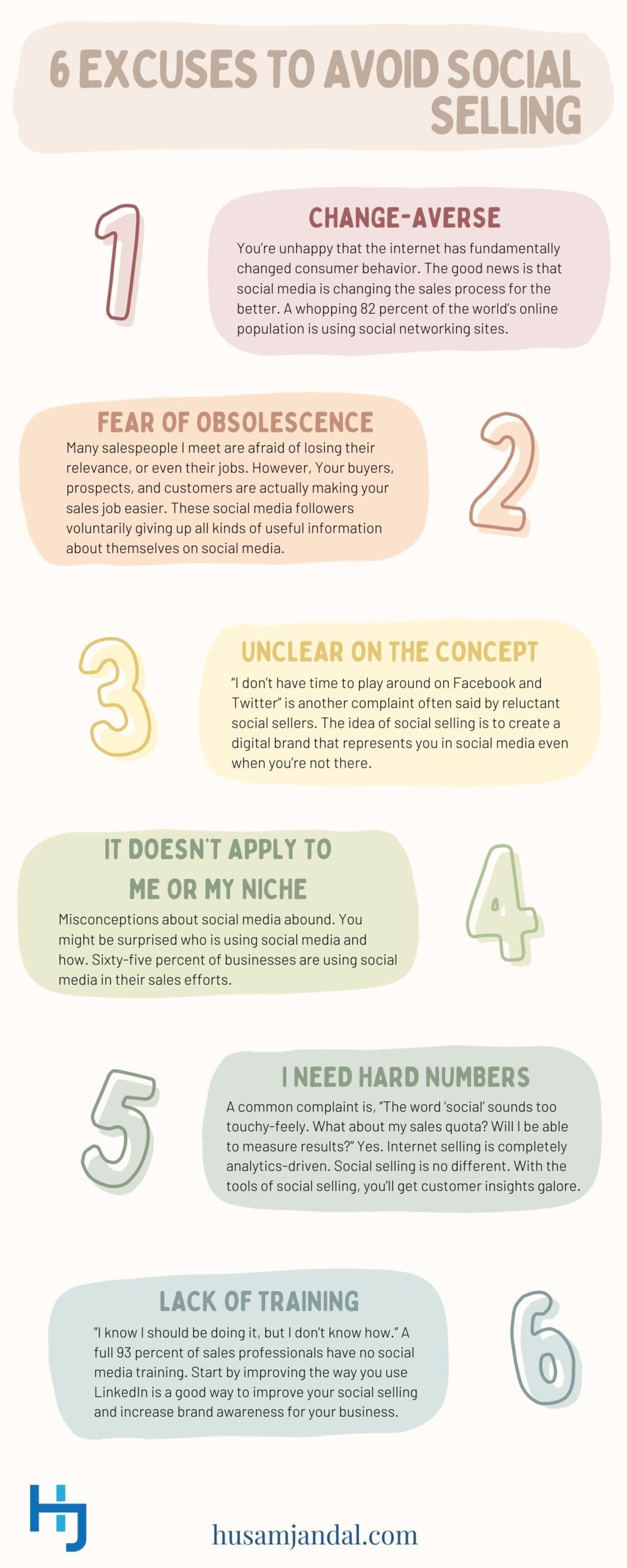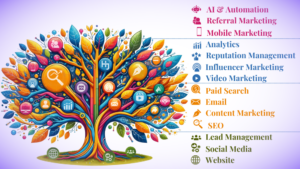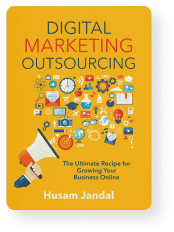
Admitting you have a problem is the first step in solving it. If you are reading this, you may have recognized that you have a problem with your business. You’re working harder than ever, yet sales are lagging. You’re missing opportunities, but you’re not sure why.
You may have heard good things about “social selling.” Finding time to investigate this is another matter, however. More likely, you’re not familiar with the term social selling. That’s understandable. It’s not (yet) as common as terms such as e-commerce, online sales, SEO, digital marketing, or social media management.
Here’s what we mean by social selling:
“Social selling is the practice of leveraging social networks and the associated tools in the overall sales function, from lead generation to closed deals to account management.”
Sounds powerful, doesn’t it? It is powerful. Extremely powerful.
So what’s stopping you from being a superstar social salesperson?
Here are the six most common “excuses” I hear all the time:
1. Change-averse.

You’re unhappy that the internet has fundamentally changed consumer behavior. Consumers are doing more and more of their pre-purchase research online. In fact, 70 percent of purchases occur before they ever talk to a salesperson. Criteria for choosing a product/vendor/provider have evolved. Buyers now have instant access to a range of publicly available information and peer-to-peer reviews and discussions.
Today’s customers are driving the buying process. As a result, the traditional way of selling (e.g., cold calling) is dead.
This makes you uncomfortable. You don’t like to change. You don’t like “losing control” of your sales process. Especially if your business is not technology-driven, this sales process shift may be confusing, overwhelming, annoying, or hard to accept.
Here’s the good news: Social media is changing the sales process for the better. A whopping 82 percent of the world’s online population is using social networking sites. Nearly one in five minutes spent online is devoted to social networking. No wonder prospects aren’t answering your phone calls. They’re busy working on social networking sites! Your target audience is waiting for you to engage with them, which is why your social media presence and social media strategy is so important.
The ancient Greek philosopher Heraclitus of Ephesus said, “All is flux, nothing stays still – there is nothing permanent except change.” Instead of denying social media posting, embrace it.
You will see you haven’t lost control of anything. Quite the opposite is true.
2. Fear of obsolescence.
Many salespeople I meet are afraid of losing their relevance, or even their jobs. With the shift to online social networking, they don’t quite know where they fit or what skills and resources are transferable from the old, traditional way of selling. You may be one of those natural-born, silver-tongued sales pros who could sell ice to an Eskimo. That’s your talent. Along with your Rolodex and expense account, you don’t want to lose that personal touch that’s worked so well for your relationship-building all these years. I don’t blame you.
The more good news about social selling: Your buyers, prospects, and customers are actually making your sales job easier. These social media followers voluntarily give up all kinds of useful information about themselves on social media. This information makes you even more efficient, effective, and more relevant than ever. It’s a lot easier to do your research when the information is right there in real time. You can discover key trends as well as key decision-makers and purchase influencers and what’s on their mind. With social sales intelligence and a strong brand voice, you can reach buyers at exactly the right moment. Isn’t that your goal?
Social media engagement doesn’t replace the fundamentals of good sales. You’re still creating meaningful one-on-one relationships with the people you want to sell to. You’re still solving customer needs. The major difference is that instead of pitching, you are providing value.
3. Unclear on the concept.
“I don’t have time to play around on Facebook and Twitter” is another complaint I hear from reluctant social sellers. With an attitude like that, you’ll thwart your social selling efforts before you even get started. Of course, you don’t have time to play! Social selling is a serious process that can greatly improve your business’s credibility!
I believe this negative, dismissive attitude stems from the outdated beliefs that:
a) Social media = only Facebook, Twitter, and Instagram and
b) Social media is only for social (personal) networking and fun.
Although Facebook, Twitter, and Instagram are by far the most widely recognized social platforms, they’re hardly the only ones available to you. You already know that. You’re on LinkedIn. You’re already engaging in professional social networking. That’s a great start. LinkedIn makes a great foundation for your social selling strategy. However, a LinkedIn profile and a few dozen (or even a few hundred) connections is a far cry from leveraging the full power of social selling. It’s like putting on the uniform and sitting on the bench. You’re missing out on the real action.
The idea of social selling is to create a digital brand that represents you in social media even when you’re not there. Consider it your “online salesforce.” The key is to identify which social media channels your prospects/buyers/customers are using and how. Tune in to what your target market is thinking. Then turn your online salesforce into a customer- and influencer-engaging trusted adviser. Offer valuable, credible information at every step of the sales process to your fans.
4. It doesn’t apply to me or my niche.
“I sell B2B, not B2C,” or, “We’re a nonprofit. What can social media possibly do for us?”
Misconceptions about social media abound. You might be surprised who is using social media and how.
Sixty-five percent of businesses are using social media in their sales efforts. Fifty-five percent believe their sales organization would be more productive if they had a larger social presence, according to The Sales Management Association.
In a recent survey, 72 percent of B2B buyers said social media would likely influence a future purchase decision. Similarly, Nonprofits are increasingly using social selling to drive awareness, solidify branding, and demonstrate their thought leadership around issues/causes. However, 11 percent continue to rely on traditional media exclusively.
Truth: If you don’t adopt social selling, your competitors will — and likely already have.
5. I need hard numbers.

Every so often, I still hear this complaint: “The word ‘social’ sounds too touchy-feely. What about my sales quota? Will I be able to measure results?”
The answer is a resounding “yes.” Internet selling is completely analytics-driven. Social selling is no different. With the tools of social selling, you’ll get customer insights galore. Monitoring tools (some free, some subscription) let you listen to your prospects and customers in real time. You can also track your social buyer behavior using the measurement associated with each social media platform (e.g., mentions, shares, likes, retweets, etc.). Overall, you’ll be able to quantify and track your ROI by social media sources and adjust your strategy accordingly.
Here’s a hard number that should get you excited:
According to CSO Insights: “Effective use of sales intelligence increases revenue productivity per sales rep by 17 percent.”
6. Lack of training.
“I know I should be doing it, but I don’t know how.”
You’re not alone. A full 93 percent of sales professionals have no social media training. Fifty-three percent say they want help improving their social media expertise. This can include putting together social media campaigns, writing keyword-orientated blogs posts, and learning more about effective social media advertising (such as Facebook ads).
Chances are very good you fall into this group, and starting by improving the way you use LinkedIn is a good way to improve your social selling and increase brand awareness for your business. You are savvy enough to be using LinkedIn. As I mentioned above, LinkedIn is the best foundation for any social selling effort.
Now you know a little bit more about social selling. You understand why avoiding social selling is deadly for the future of your business.
So, now what’s stopping you from becoming a social selling superstar and taking your social media strategy to the next level? Contact me to discuss your needs.





































































